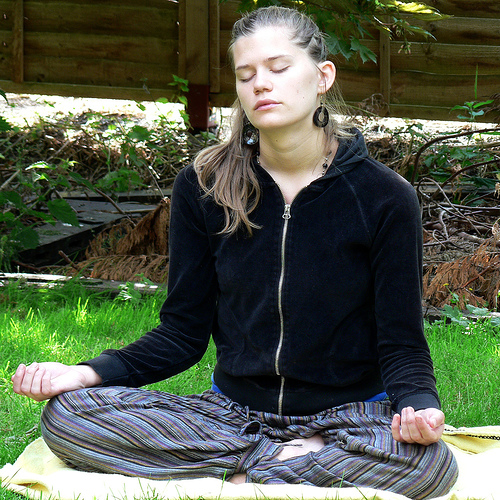
Between late 2005 and early 2010, I lost more than 60 pounds as I gradually got the hang of exercising regularly and eating well. From a starting weight of 238, I dropped in fits and starts to 175 while adding a substantial amount of muscle. For the first time in my life, people were calling me “thin” and worrying I wasn’t eating enough (though they don’t need to worry: I’m nowhere near starvation). Since then, I’ve remained fit and active, even while my weight goes modestly up and down within a healthy range.
It’s not just about diet
Eating habits are an important part of getting fit, but in many ways they’re both the harder part and the less important part. The other key piece, of course, is exercise. Does the word “exercise” bring to mind images of people sweating on treadmills while being slowly bored to death, or running beside the road at 5:00 in the morning? Because while it can take that form, exercise can also be easy and appealing. After all, it’s not automatically true that when we use our bodies, we’re uncomfortable or unhappy-in fact, the reverse is closer to the truth. If jumping into hard-core, sweaty, “no pain no gain” exercise doesn’t appeal to you, there are many more tempting ways to get started. The wonderful thing about this is that regular exercise, especially in certain forms, becomes a “keystone habit”: that is, a positive change in behavior that encourages other positive changes.
Walking
I’ve heard it said that walking burns about as many calories per mile as running, but this turns out not to be true. In fact, if you look at net calories burned (that is, how many extra calories we’re burning while exercising compared to the amount we burn to maintain basic bodily functions even if we’re just sitting on the couch), running burns about twice as many calories per mile. Since a typical running speed is in the neighborhood of twice the typical walking speed, this means running burns about four times as many extra calories per hour as walking. (If you’ve heard that walking and running burn about the same number of calories or are just interested in the topic, see this article for some details and the study on which the statement is based.)
However, so what? The time advantage may mean a lot to someone who has no time to walk, but it’s often much easier to make time for walking than for running. There’s little need for special clothing or for showering afterward, so walking is actually a bit more efficient than it might seem in the time department. Walks are also a good way to spend time with friends or family members and a free activity that’s good for everyone involved. Walking lifts moods and provides a good opportunity for conversation. Walks can provide quality time with a romantic partner, children, or adult family members. They can make it possible to meet and interact with neighbors, and they are often an excellent way to improve mood (see “The Benefits of Quick, Easy, Pleasant Exercise“). Walking isn’t just exercise: it can be a mood booster, social time, family time, time to yourself, or a way to get from Point A to Point B (and not be dripping with sweat when you arrive).
Other easy ways in
Other easy kinds of exercise can be more strenuous but more entertaining. Dancing, for example, can often keep a person interested and happy for hours while providing anything from a mild to an intense workout. Speaking from personal experience, you don’t even have to be very good at it to both enjoy it and get the exercise benefits.
In the same way, any safe activity that keeps us in motion and keeps us engaged provides an avenue for exercise as entertainment. At our house, for example, both kids and adults play the outdated “dancing” video game Dance Dance Revolution. Taekwondo is nearly always engrossing for me, in the same way that kickboxing or rock climbing might be engrossing for someone else. Other options include team sports, group walks and bicycle rides, hiking, swimming, and paddling.
Limitations
It’s true that going for a walk twice a week or going out dancing every once in a while alone isn’t likely to make a dramatic difference in health-but it will make some difference, and even if it just means a few pounds lost over a month or two, that’s progress in the right direction. What’s important is that when any kind of exercise-whether it’s easy and entertaining or energetic and effortful-becomes a habit, that habit provides both a sense of competence and a metabolic boost that can set the stage for more improvements, with the end result of a dramatic change for the better.
Photo by Natodd









